#catalogue of ephemera
Text
Catalogue of Ephemera
by Rebecca Lindenberg
You give me flowers resembling Chinese lanterns.
You give me hale, for yellow. You give me vex.
You give me lemons softened in brine and you give me cuttlefish ink.
You give me all 463 stairs of Brunelleschi’s dome.
You give me seduction and you let me give it back to you.
You give me you.
You give me an apartment full of morning smells—toasted bagel and black
coffee and the freckled lilies in the vase on the windowsill.
You give me 24-across.
You give me flowers resembling moths’ wings.
You give me the first bird of morning alighting on a wire.
You give me the sidewalk café with plastic furniture and the boys
with their feet on the chairs.
You give me the swoop of homemade kites in the park on Sunday.
You give me afternoon-colored beer with lemons in it.
You give me D.H. Lawrence,
and he gives me pomegranates and sorb-apples.
You give me the loose tooth of California, the broken jaw of New York City.
You give me the blue sky of Wyoming, and the blue wind through it.
You give me an ancient city where the language is a secret
everyone is keeping.
You give me a t-shirt that says all you gave me was this t-shirt.
You give me pictures with yourself cut out.
You give me lime blossoms, but not for what they symbolize.
You give me yes. You give me no.
You give me midnight apples in a car with the windows down.
You give me the flashbulbs of an electrical storm.
You give me thunder and the suddenly green underbellies of clouds.
You give me the careening of trains.
You give me the scent of bruised mint.
You give me the smell of black hair, of blond hair.
You give me Apollo and Daphne, Pan and Syrinx.
You give me Echo.
You give me hyacinths and narcissus. You give me foxgloves
and soft fists of peony.
You give me the filthy carpet of an East Village apartment.
You give me seeming not to notice.
You give me an unfinished argument, begun on the Manhattan-bound F train.
You give me paintings of women with their eyes closed.
You give me grief, and how to grieve.
256 notes
·
View notes
Text
You give me flowers resembling moths' wings.
Rebecca Lindenberg, Love, An Index; from 'Catalogue of Ephemera'
208 notes
·
View notes
Text
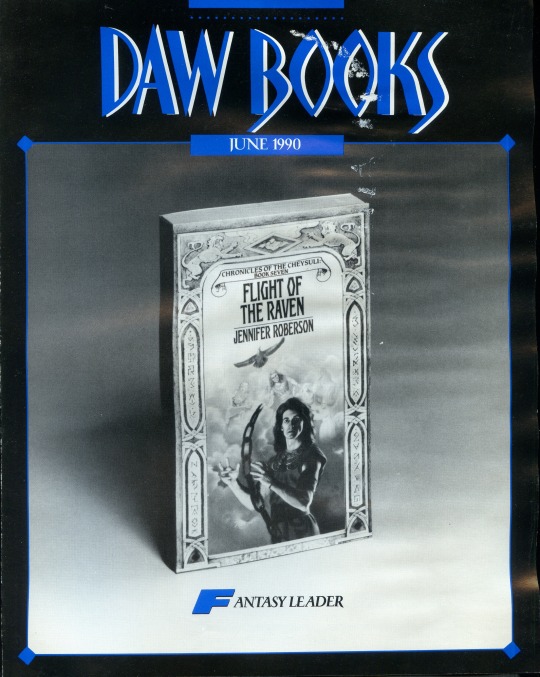
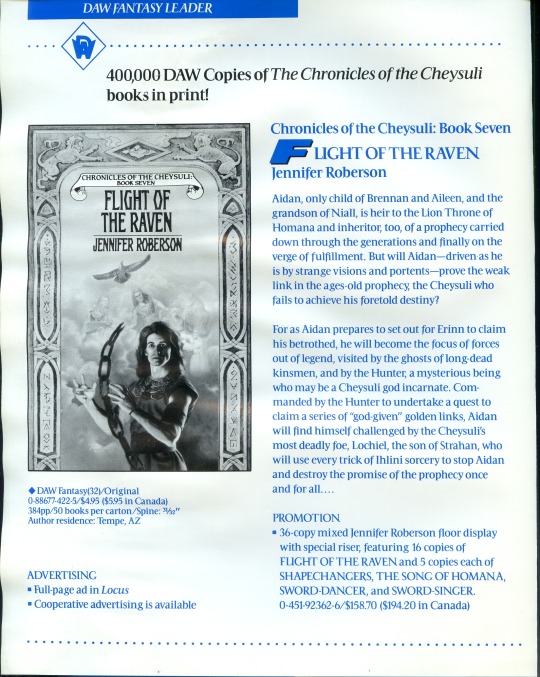

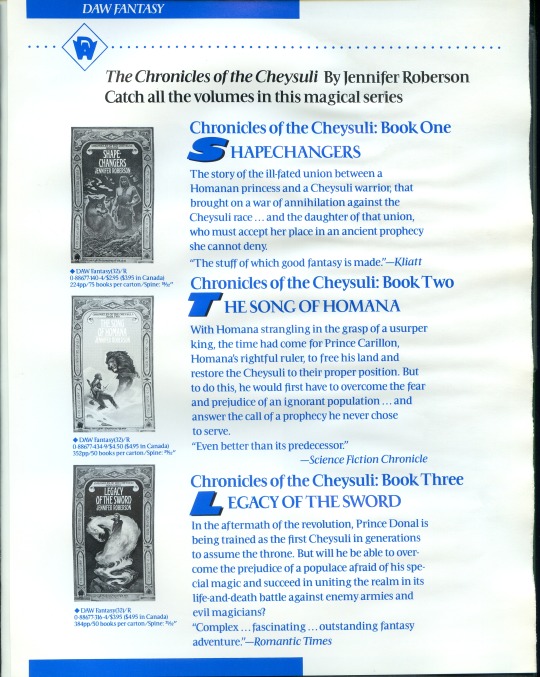
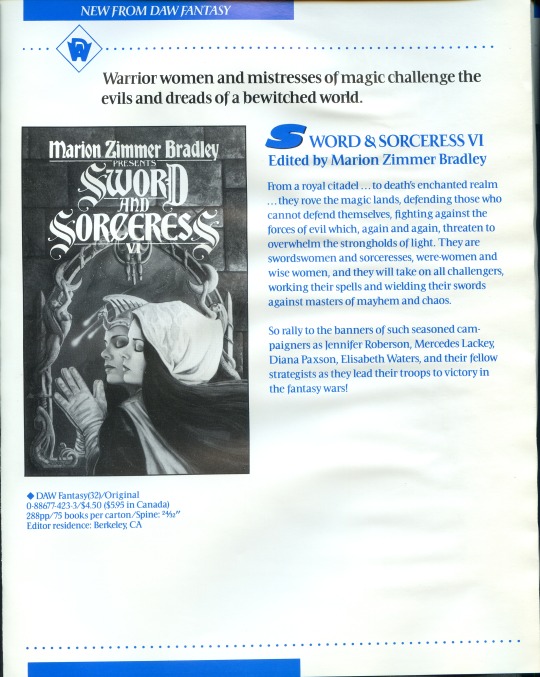
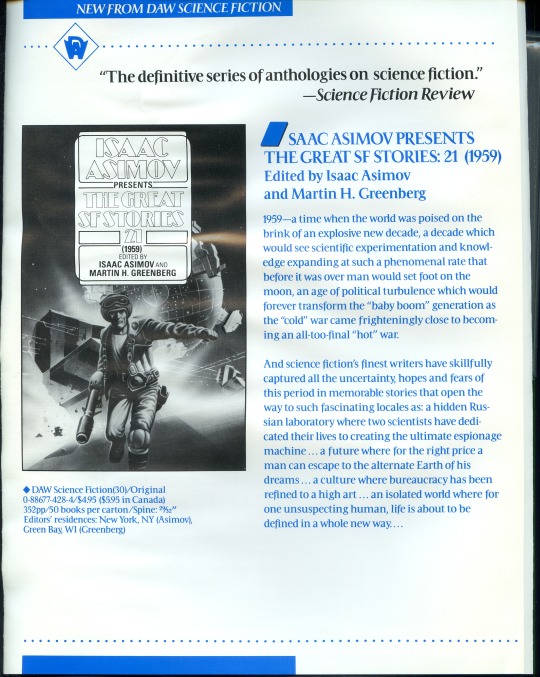
DAW flyer June 1990
2 notes
·
View notes
Text
Okay another aside bc today is a Neat Day at work,
When the semester starts up again and classes return, Special Collections is FUN bc we have classes come in to see a selection of our books pertaining to their course and it's always SO SO COOL
One of the things about class prep though is grabbing the books from The Vault, bc usually, since it's SC/RB, the curator asks whichever tech (there's two of us) is fetching items for the class to grab the item (if there's multiple copies) with the most interesting provenance and such, or like a dust jacket, but usually in best condition!
We're predisposed now to look through the books for interesting provenance, inscriptions, etc., even if it's not a duplicate copy, so it's always a Cool Time. ESPECIALLY because, due to past lacklustre cataloguing practises, about 80% of the time when we find a cool provenance it's not in the record and our curator is like 😤😤😤 WHY didn't they NOTE THIS!
And then we get to note it! And this is one of my FAVOURITE parts of the job 🤩🤩🤩
So yesterday/today I had a bunch of books for an English Class on controversial Canadian literature (v cool sounding course), and one of the items we brought up was a catalogue of banned books from the 18th century (ish). It was written in LATIN, had The Good Paper (rags, not pulp), bound in VELLUM, so it was. you know. A thing you'd be like "Oh yeah! this should deff be in rare books/special collections!"
Wanna know what ELSE it had?
That WASN'T in the record?
IT HAD:
TWO different ownership inscriptions
(Dated 1756 and 1916, respectively)
(One was a priest/Monk; the other was a doctor so. how did this go from the CHURCH to a DOCTOR, AKA, RELIGION TO SCIENCE? HMMM)
Bookseller's ticket (stamp)
AND IN THE BACK! A LETTER! WRITTEN BY ONE OWNER EXPLAINING WHY HE GIFTED IT TO THE OTHER OWNER!
AND WAS ANY OF THIS MENTIONED?
NO!
So I got to update the record and make the letter a little item file and then the curator and I tracked down the person the letter was FOR to a church in about 1966 and how COOL is THAT
SO FUCKING COOL
#dani speaks#dani works special collections#SO COOL! FUCK!#special collections#rare books#history#ephemera is some GOOD SHIT#there were two other books brought up for this class with a lot of cool shit that was not mentioned in the record#one had a huge inscription to the owner who gave it to us FROM THE AUTHOR#the other one was paperback but rebound in library hardcover. with another inscription. AND a news article pasted inside the free endpaper#AND IT WASN'T IN THE CATALOGUE#sc is an ADVENTURE guys
1 note
·
View note
Text
favourite poems of february
avery r. young peestain
claudine toutoungi future perfect
david rivard bewitched playground: "not guilty"
brian kim stefans the future is one of place
lisa gill post-traumatic rainstorm
clare pollard pinocchios
rebecca lindenberg love, an index: "catalogue of ephemera"
etel adnan the arab apocalypse: "xxxvi"
stanley moss god breaketh not all men's hearts alike: "a blind fisherman"
robert browning an epistle containing the strange medical experience of karshish, the arab physician
tom sleigh beirut tank
khaled mattawa ismailia eclipse: "date palm trinity"
mark levine unemployment (3)
lucia cherciu butter, olive oil, flour
reginald shepherd fata morgana: "you, therefore"
john updike claremont hotel, southwest harbour, maine
bruce smith the other lover: "february sky"
johnny cash forever words: the unknown poems: "don't make a movie about me"
eamon grennan what light there is & other poems: "jewel box"
eduardo c. corral in colorado my father scoured and stacked dishes
thomas mccarthy the beginning of colour
divya victor curb: "blood / soil"
henneh kyereh kwaku in praise
joanna fuhrman to a new era: "lavender"
rosemary catacalos sight unseen
sam willetts digging
megan fernandes winter
jaswinder bolina the plague on tv
juan felipe herrera notes on the assemblage: "almost livin' almost dyin'"
kofi
#tbr#tbr list#february#poem#poems#poetry#poet#poets#avery r young#peestain#avery r. young#claudine toutoungi#future perfect#brian kim stefans#the future is one of place#david rivard#not guilty#bewitched playground#lisa gill#post-traumatic rainstorm#clare pollard#pinocchios#juan felipe herrera#almost livin almost dyin#almost livin' almost dyin'#notes on the assemblage#johnny cash#don't make a movie about me#forever words#forever words: the unknown poems
190 notes
·
View notes
Text
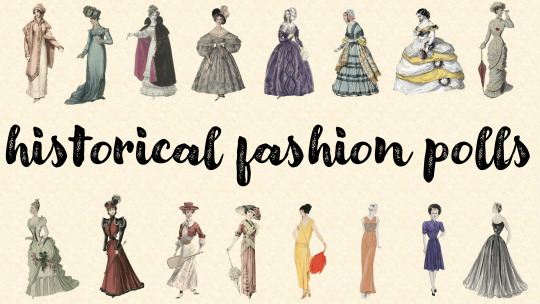
hello and welcome to historical fashion polls!
i'm so glad you're here and i hope you enjoy your stay 🥰
here (below the cut) you'll find all the relevant info related to the blog:
about the blog and the curator
image submission
requests
never hesitate to send in a message if you have questions, comments, or just want to say hi ☺️

this blog is dedicated to historical fashion polls!
currently, i limit myself to fashion plates, catalogue images, and other mass-produced fashion illustrations (explanation here)
the main timespan covered by the blog is 1770-1990 (explanation here)
however, i am happy to receive image submissions from outside these parameters – more info on making requests and submitting images below!
discussions about what content will be featured on the blog can be found under the tag "curatorial updates"
relevant decades and centuries are tagged on all posts

my name is charlotte (she/they) and i'm the curator of the blog! ☺️
i'm an art history phd student and aspiring professor studying late 19th century british and american art, primarily ephemera and "visual culture" (like fashion plates, book and newspaper illustrations, scrapbooks, photographs, etc.)
my main blog (where i talk about art history and music and make edits) is @ourstaturestouchtheskies
my ramblings can be found under the tag "the curator speaks"
my lovely conversations with all of you can be found under the tag "curatorial correspondences"

i'm very happy to receive image submissions from you all!
you can do that through the ask box, by submitting a post, or via direct message
image submission requirements (without these i won't be able to feature your image 😔😔)
please include the year or decade the image represents
please ensure that we can see the clothing clearly enough to get a sense of what each garment looks like
since this is a poll blog, please be sure that the garments chosen are at least somewhat comparable
if sending in images via dm, let me know whether you would like me to tag you in the post that features your image
as always, feel free to let me know if you have questions on any of these requirements! ☺️
if you would like to see an image i've already posted on the blog featured again, that's also an option! info on doing that here

i'm also very happy to take requests!
if you have something specific you'd like to see featured on the blog, send me an ask!
please just remember that the kinds of images i myself will source are primarily from fashion plates that span from 1770-1990 (more detailed info available above)
if your request is outside these parameters, i encourage you to submit the images you'd like to see featured! (more detailed info available above)
to give a sense of the kinds of things that folks have requested, both pending and resolved requests are available below

requests that i have received but for which i have not yet been able to add images to the queue
footwear
40s skiwear
late 19th c artistic/aesthetic dresses
historical sleepwear/nightgowns
historical flower fairies
armor?

requests that i have received and have either already been featured on the blog or are currently in the queue
masc fashion (late 18th c, early-mid 19th c, early-mid 20th c)
bloomers
headgear
swimwear
80s prom/bridesmaid dresses
20s tennis outfits
40s/50s pjs
working class fashion
#finally made a comprehensive intro post!!#historical fashion polls#the curator speaks#curatorial updates#long post#intro post
48 notes
·
View notes
Text

Coffee is the sound of taste, a sound for the aroma. It is a meditation and a plunge into memories and the soul.
(from Mahmoud Darwish's Memory for Forgetfulness)
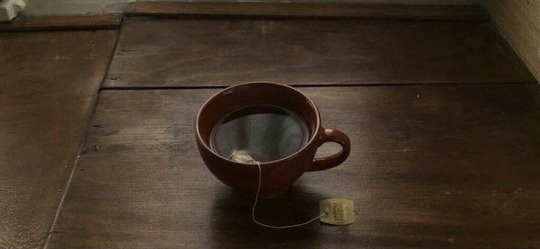
Coffee should not be drunk in a hurry. It is the sister of time, and should be sipped slowly, slowly.
(from Mahmoud Darwish's Memory for Forgetfulness)

I only believe in the easy things,
like red lipstick and coffee before noon and writing essays in pen.
(from Kristina Haynes, Self-Portrait at Twenty-One)

They can aim sea, sky, and earth at me, but they cannot root the aroma of coffee out of me.
(from Mahmoud Darwish's Memory for Forgetfulness)

I think we all speak a different kind of language than each other,
but you sound a whole lot like coffee on a Sunday morning and the rain is falling bitter against the windowpane.
(from Shinji Moon's He Loves the Rain)
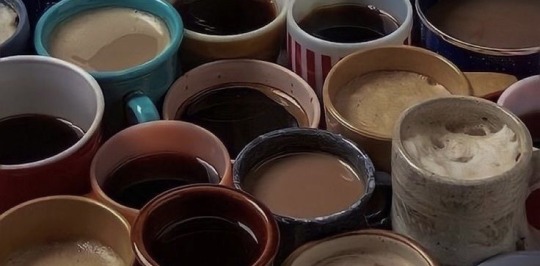
You give me an apartment full of morning smells-
toasted bagel and black coffee and the freckled lilies in the vase on the windowsill.
(from Rebecca Lindenberg's Catalogue of Ephemera)
Making Coffee
Excerpts taken from trivarnahariharan_poetry on Instagram
#coffee#coffee moodboard#dark academia#poetry#poetry blog#excerpts#web weaving#fragments#quotes#mehreen khan#book qoutes#desiblr#literary qoutes
92 notes
·
View notes
Quote
You give me an apartment full of morning smells - toasted bagel and black coffee and the freckled lilies in the vase on the windowsill.
You give me 24-across.
Rebecca Lindenberg, from her poem ‘Catalogue of Ephemera’, (from the collection “Love, An Index”, McSweeney’s, 2012
968 notes
·
View notes
Text
Join me and take action in the Battle for Libraries
As you may know, I am a passionate lover of the Internet Archive. Through 2020, I ran a section on my ephemera blog where I talked about hits from the Wayback Machine; I am a contributor myself, to the extent that my free time allows; even a lot of the music I play on streams is from there.
Yesterday, the worst happened: the future of 4 million digital books on the Internet Archive is now at stake, as well as libraries everywhere in the USA. I learned that the methods being targeted in this lawsuit (CDL, Controlled Digital Lending) are not just unique to the Internet Archive, but apply to the way even libraries like the fucking Boston Public Library, one of the largest libraries in the United States. This is a threat to public libraries and accessibility. The alternative we are expected to follow is book bans.



How can I help?
Donate if you have the money, obviously. But I know that's hard.
Sign the petition and sign up for email updates at Battle for Libraries. Not just a change.org petition but an established group that is working on organizing rallies.
They have some freebie graphics you can put on your posts (above). I don't see the harm in it.
Subscribe to the Empowering Libraries newsletter.
Support your local library. Even just going there when you can counts, they need the numbers! Check out books, look at their equipment if they have a makerspace.
Now's a good time to make personal backups of things that you could not live without. There's no real hope of an Internet Archive Archive (more on why it's more difficult than you think), but decentralized backups are always a good thing.
Don't just take it for me. DO YOUR OWN RESEARCH!
How to argue with "But piracy..."
First off, don't argue with trolls. But if you have an acquaintance who really doesn't get it, here's some resources.
Bandcamp's stance on piracy: "It’s not like they’d slap their forehead and open their wallet. Instead, they’d just move on to some other site where those restrictions aren’t in place."
"But if they steal it – how can I make money?"
Small Publisher Embraces Controlled Digital Lending to Connect with New Readers: "I think in the end, it drives sales because you are finding readers you wouldn’t normally have. Those readers aren’t getting a copy that they keep forever — it’s a copy that’s going to lead them to want to own it."
In the hopefully-near future I will be publishing a list of online library catalogues; coincidentally, I was reading a decade-old book about digital libraries, so I've got a ton of links for you guys.
135 notes
·
View notes
Note
How do you find the time to read all your book recs?? Also would you mind talking about your process for researching specific topics :)
i generally only make rec lists for things i have enough familiarity with to navigate the literature so, you have to keep in mind those lists are sometimes literally a decade+ of cumulative reading on my end. i do also sometimes include texts i haven't read in their entirety, or occasionally even ones i've only come across in footnotes but still think are foundational or relevant enough to warrant a rec.
as to my research process: there's no single answer here because the sort of research i do will depend on what questions i'm trying to answer. usually if i'm starting to look at a topic completely from scratch, i'll ask someone who publishes in that area what the major recent works are, then scan a few of them. i might 'snowball' those texts (read the works they cite in their footnotes) but, that strategy has limited utility because it only goes backward in time and sometimes a recent or uncited text can be incredibly valuable. so there's a fair amount of bumbling around in the secondary literature at this point. some academic journals maintain bibliographies for their subfields, which are not comprehensive but can be useful; i usually also do a certain amount of keyword fuckery in my library's database. sometimes i waste a lot of time at this point chasing leads that turn out to be irrelevant, or i discover that a question i was chasing is really better tackled from an entirely different direction. shit happens.
at some point i usually reach a stage where i need to look at some primary sources, because i'm oriented enough in the major issues to identify spots where previous researchers haven't made full use of historical records, or may be interpreting them in a way i disagree with. so, what exactly i'm looking for now really varies. sometimes i just want to read the primary texts that another historian is commenting on: for example, the last few months i was trawling through the french national library's archives to see what people were saying in print about a specific historical figure between about 1778 and 1862. other times i might want population data or land records: births, deaths, cholera infections, records of church property sales, &c. depending on, again, what sorts of questions you're asking, anything might have useful information to you: postmortem personal auction catalogues have given me some mileage, along with wills and personal correspondance. i have a committee member who collects and analyses postcards often being sold for pennies at flea markets out of people's grandparents' attics, and another who has an ongoing project looking at a zillion editions of a specific children's book printed in the late 19th century. along the way, as i look at primary sources, i will typically go back and forth to more secondary literature, as i find new topics that might be relevant or help me contextualise what i'm looking at. i can't ever really plan these things out systematically; i just follow what looks promising and interesting and see where it leads me.
another thing to consider is that the primary sources sometimes tell me useful information directly in their capacity as material objects. what type of paper is used, what personal or library stamps appear on the cover, who's the publisher, how many editions did it go through, are the print and typeset jobs sloppy, where was this copy found or preserved? these sorts of details tell me about how people reacted to the text, its author, and the ideas within, which can be a valuable part of whatever investigation i'm trying to conduct. sometimes i end up chasing down information on a publisher or the owner whose personal library a book or piece of ephemera came out of; there are people who research processes of preservation, printing, &c in themselves, which has yielded some fascinating studies in recent decades.
at some point, if it's a research project i'm trying to communicate to other people, i will switch to writing mode, where i try to organise ^^ all of that in my head, and form a coherent narrative or argument that i think is worth making. this might be revisionist in nature ('people have argued before that such and such was x way or historical actors thought about it like y, but what i have here indicates we should actually understand it in the context of z') or it might be more like, "hey, i found this thing i don't think anyone knows about!" or anything else. again, the way you put together a research project will vary so widely depending on what you're researching, and why, and why you think it matters and to whom.
also, i should emphasise that what i've written here isn't necessarily something that happens on a strict or compressed timeline. i'm working on a dissertation, so for that topic, i do have reasons i want to complete parts at certain times, unfortunately. but i also have research projects that i just chip away at for fun, that i've had on various backburners for literally years, that i might sometimes write about (eg, on here) without necessarily ever planning to subject them to the hegemon of academic publishing. i think knowledge dissemination is great and to that end i love to talk to people about what i'm researching and hear about their stuff as well. but, i also think research projects can be fun / rewarding / &c when they're completely for your own purposes, untimed, unpublished, &c &c. i guess i'm just saying, publishing and research conventions and rules sometimes have purposes (like "make it possible to publish this as a book in the next 5 years") but don't get so hung up on those rules that they prevent you from just researching something for any number of other reasons. there are so many ways to skin a cat 📝
47 notes
·
View notes
Photo
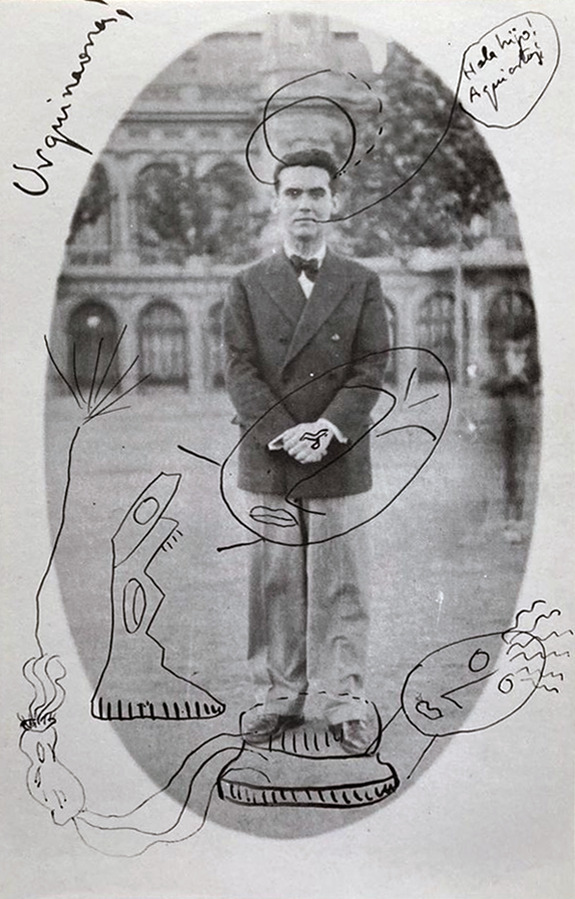

From Federico García Lorca: ‘Dibujos’, (exhibition catalogue), Museo Español de Arte Contemporáneo, Madrid, 1986 [Exhibition: October 22 – December 7, 1986] [Art Books & Ephemera]
#graphic design#art#drawing#photography#exhibition#catalogue#catalog#federico garcía lorca#museo español de arte contemporáneo#1980s
148 notes
·
View notes
Text
are there any blogs like @dni-archive that just catalogue tumblr bio ephemera but do not also occasionally (in earnest) throw in the dumbest callout post you've ever seen. it's a great idea for a blog but that one in particular so fucking annoying to follow
17 notes
·
View notes
Text
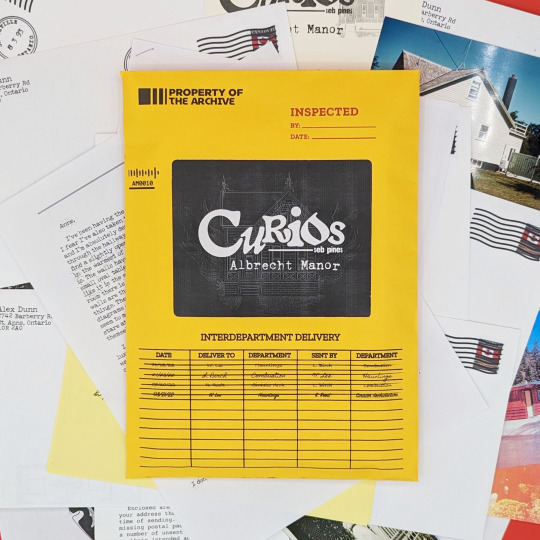
What happened to Alex Dunn? The answer is in the letters.
Reality contains fractures, a series of anomalous events that defy explanation, with only remnants of their occurrences left behind. Letters, recordings, photos and reports are all that remains of these phenomena, housed within the Archive, a catalogue of the extraordinary and peculiar. Our first collection is calamitous events connected through the centuries: The Case of Albrecht Manor.
As a researcher for the Archive, read through Alex Dunn's letters and notes. Uncover the missing pieces of the mystery behind their rural Ontario home in 1993. Explore the connection between this house and the original, destroyed in a fire a hundred years before. Can you connect the clues and find the hidden patterns of this house's history?
Curios: Albrecht Manor is an epistolary horror mystery experience. A haunting story told over a series of letters and ephemera.
Curios: Albrecht Manor is available for pre-order now!
37 notes
·
View notes
Text



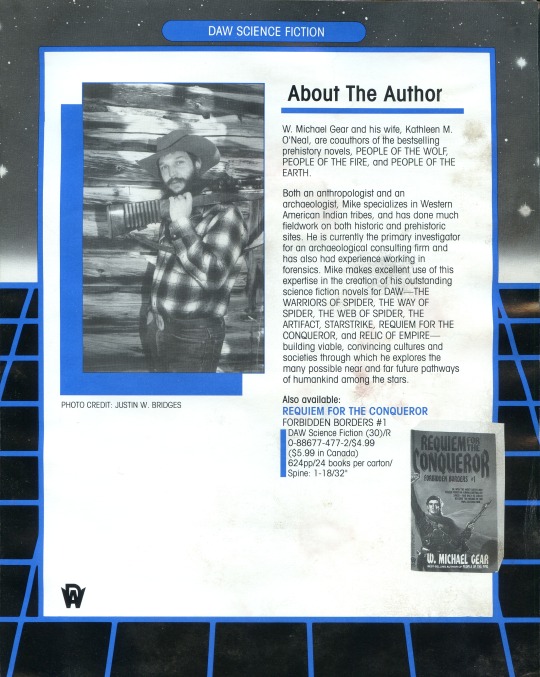
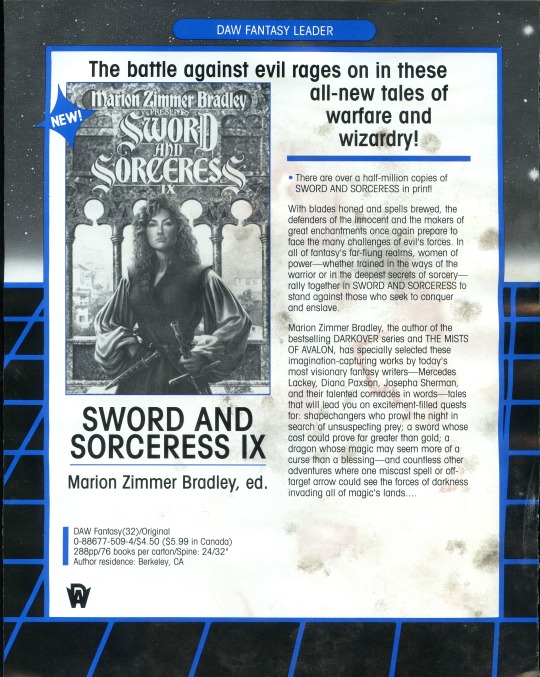
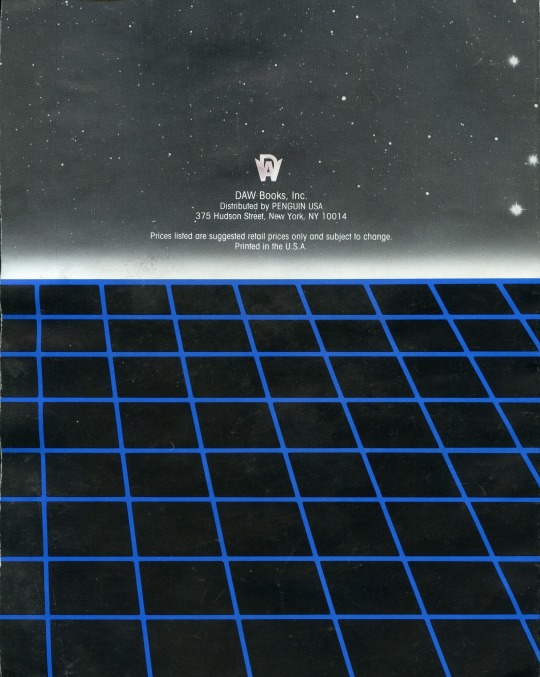
DAW flyer April 1992
2 notes
·
View notes
Text





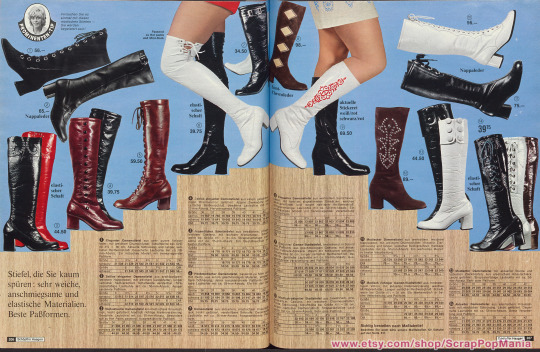

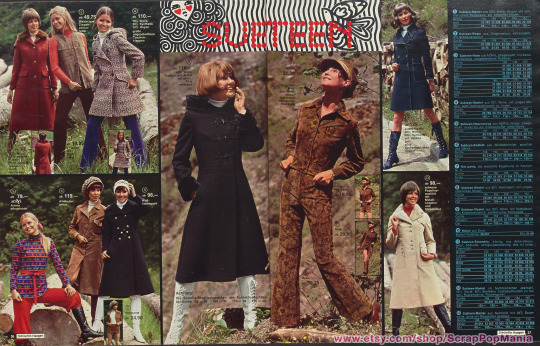

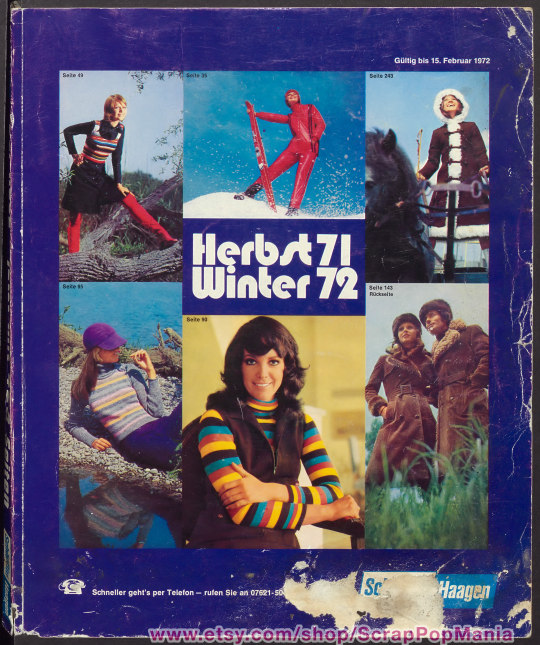
Schöpflin Haagen Catalog Autumn / Winter 1971 / 1972 PDF E-Book (with watermark)
Catalogue: Schoepflin Haagen Autumn / Winter 1971 / 1972
Pages: 418
Published: 1971
Language: German
Size: 723 MB
Format: PDF E-Book (digital product)
You will receive high quality PDF scans with a watermark from my Etsy shop.
This is perfect for collectors.
Interesting for finding ideas for the production of vintage items.
Also interesting for fashion designers and tailors and for theater & film to see what things were used in the 1970s.
A wonderful piece of ephemera and an excellent resource for designers and collectors of all kinds.
Instant download.
#70s#70er#1970s#1970er#fashion#mode#moda#catalogue#catalog#katalog#catalogo#schöpflin#haagen#1971#1972#autumn#winter#sears#roebuck#vogue#herbst#pdf#digital#download#ebook#scrappopmania#etsy#high quality#scan#sixties
6 notes
·
View notes
Text
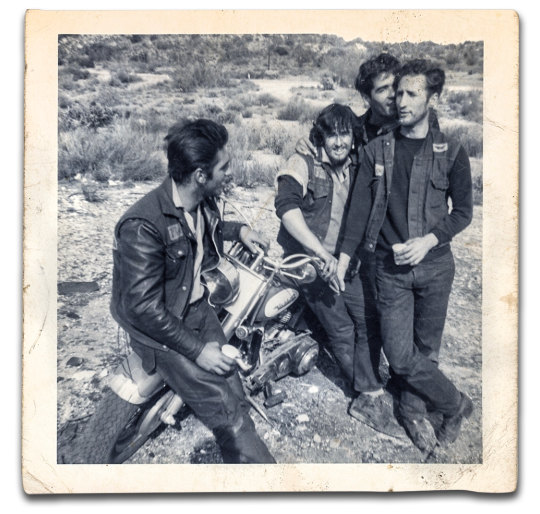
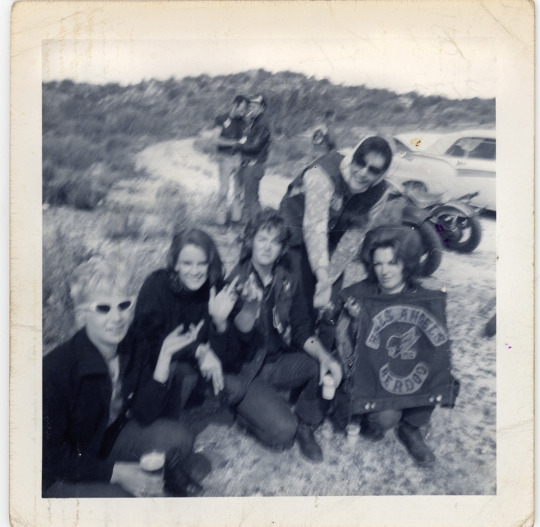



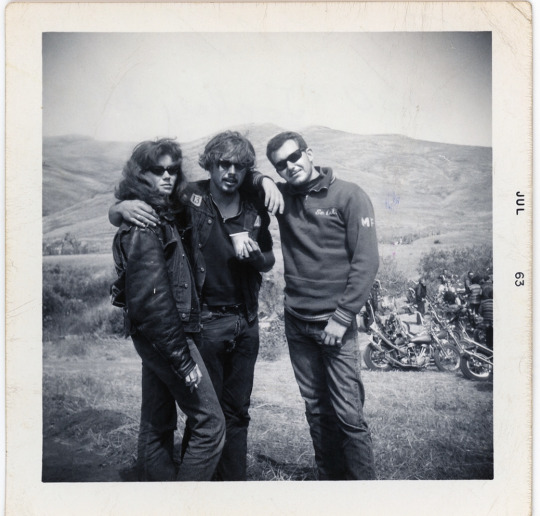
ARCHIVING THE ORIGINAL 1%
The Western Empire is an independent publishing company based in Los Angeles and affiliated with RICO. The Western Empire publishes limited edition books and zines of artistic quality which have a cult-like following.
Past publications include: Halfway to Berdoo, Coffin Cheaters, Grubby Glenn, Satan’s Slaves, Bass Lake Run, Labor Day Monterey Run 1964, Death Valley Run 1961, Devil’s Henchmen, Road Regents and Lone Wolves.
The Research Institute of Contemporary Outlaws (RICO) is a museum dedicated to the understanding and promotion of the culture of modern renegades. Based in Los Angeles, RICO locates, obtains, preserves, catalogues, and displays artifacts related to modern American outlaws. RICO’s mission is to promote a better understanding of outlaws who have often been unfairly characterized in their own time and marginalized by history.
RICO’s current project – California’s outlaw motorcycle clubs from 1950 to 1970 – has more than 50,000 artifacts, including: “club colors” (vests), photographs, meeting minutes, newspaper clippings, letters, rosters, survivor club choppers (preserved, period motorcycles that were owned by club members), hundreds of hours of interview footage with former club members (many now deceased), personal ephemera, funeral paraphernalia, original logo art, jewelry, and other fashion items.
Due to the sensitivity of the RICO’s collection, the museum is not currently open to the public. Likewise, at this time, items from the collection cannot be loaned-out from our secure facility. Academics, documentarians, artists, and others with a valid research interest may request private viewings of the collection by emailing us here.
RICO is always looking for future projects. If you have an idea, or know of a collection that warrants preservation and study, please reach out.
Outlaw Archive
19 notes
·
View notes